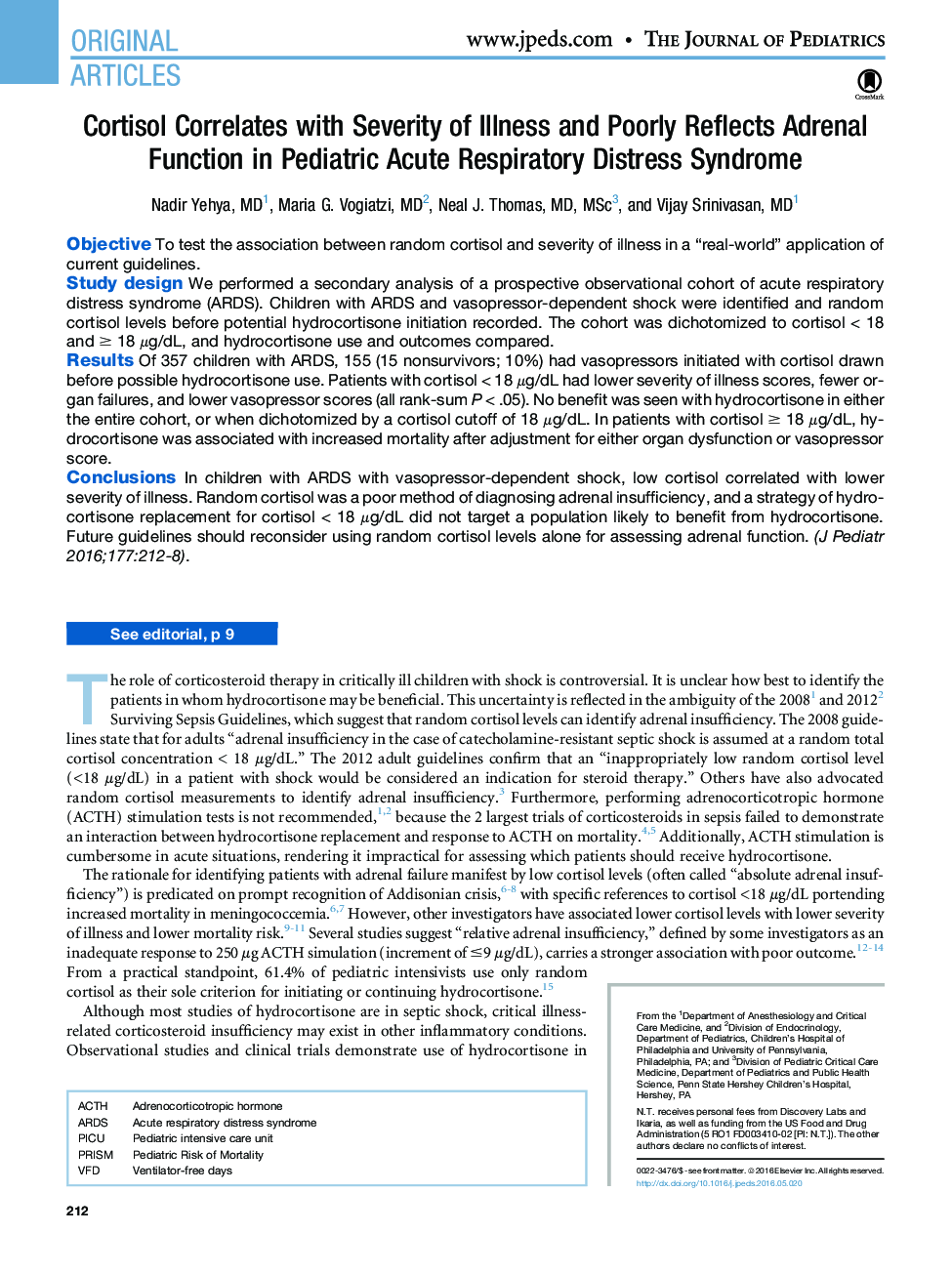| Article ID | Journal | Published Year | Pages | File Type |
|---|---|---|---|---|
| 6218729 | The Journal of Pediatrics | 2016 | 8 Pages |
ObjectiveTo test the association between random cortisol and severity of illness in a “real-world” application of current guidelines.Study designWe performed a secondary analysis of a prospective observational cohort of acute respiratory distress syndrome (ARDS). Children with ARDS and vasopressor-dependent shock were identified and random cortisol levels before potential hydrocortisone initiation recorded. The cohort was dichotomized to cortisol < 18 and â¥Â 18 μg/dL, and hydrocortisone use and outcomes compared.ResultsOf 357 children with ARDS, 155 (15 nonsurvivors; 10%) had vasopressors initiated with cortisol drawn before possible hydrocortisone use. Patients with cortisol < 18 μg/dL had lower severity of illness scores, fewer organ failures, and lower vasopressor scores (all rank-sum P < .05). No benefit was seen with hydrocortisone in either the entire cohort, or when dichotomized by a cortisol cutoff of 18 μg/dL. In patients with cortisol ⥠18 μg/dL, hydrocortisone was associated with increased mortality after adjustment for either organ dysfunction or vasopressor score.ConclusionsIn children with ARDS with vasopressor-dependent shock, low cortisol correlated with lower severity of illness. Random cortisol was a poor method of diagnosing adrenal insufficiency, and a strategy of hydrocortisone replacement for cortisol < 18 μg/dL did not target a population likely to benefit from hydrocortisone. Future guidelines should reconsider using random cortisol levels alone for assessing adrenal function.
